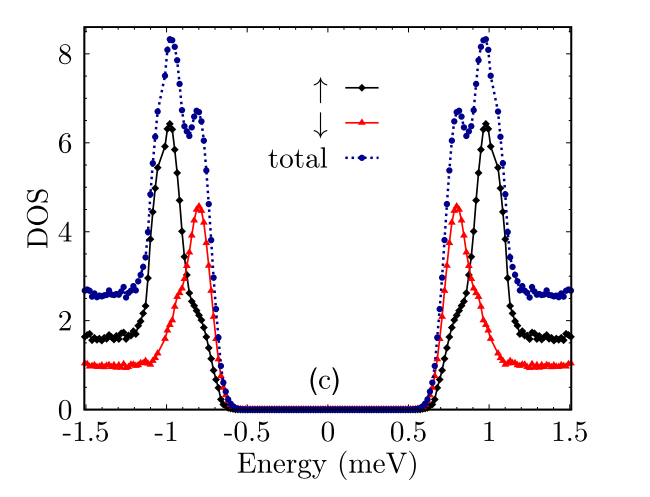
Superconductivity is a topic of enduring fundamental as well as practical interest which has recently attracted even more attention with the advent of superconducting quantum computers. The theory of so-called “unconventional superconductors” remains an extremely challenging area. Quantitative predictions are rare and it is difficult to find “smoking guns” that can provide experimental confirmation of a specific unconventional state.
In a recent paper involving theorists in Kent, Barcelona, Bristol, and Budapest we present a quantitative theory of an unconventional superconductor. The material under investigation is LaNiGa2, which has attracted much interest in recent years. Our theory has a single adjustable parameter which we fix from experiments. We demonstrate that it accurately predicts the unusual temperature-dependence of the specific heat of this system and use it to predict a unique experimental signature (in the spin-resolved density of states) of the underlying exotic pairing state.
It is interesting to note that the materials superconducting quantum computers are based on, namely “conventional” superconductors, have been well understood for over half a century. The lack of a detailed, microscopic understanding of unconventional superconductors severely limits our ability to exploit their unusual properties. Our recent work represents a step in that direction and could potentially provide a template for future predictive theories of other exotic superconducting materials. Experimental verification of our predictions would confirm this by making LaNiGa2 the best-understood unconventional superconductor.
Reference:
Sudeep Kumar Ghosh, Gábor Csire, Philip Whittlesea, James F. Annett, Martin Gradhand, Balázs Újfalussy, Jorge Quintanilla, “Quantitative Theory of Triplet Pairing in the Unconventional Superconductor LaNiGa2”. Phys. Rev. B 101, 100506(R) (2020). Preprint: https://arxiv.org/abs/1912.08160.
This blog post was edited on 14/4/2020. Changes made: added fFull bibliographic reference.